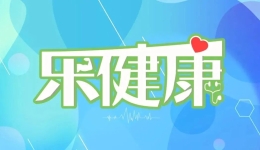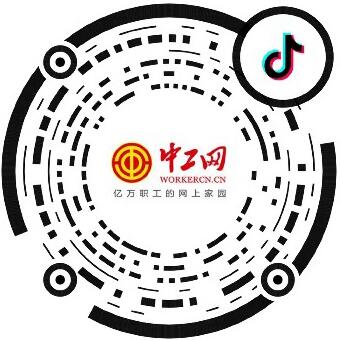Original title: The problem of workers' rights and interests caused by the "pause" button pressed by an enterprise with poor management attracted attention (quotation)
When an enterprise shuts down, how will employees be paid? Subject
Worker's Daily - reporter Pei Longxiang from China Industrial Network
Reading tips
Can the enterprise directly announce the suspension of production in the form of a notice? Whether the wages and social security of workers are affected during the shutdown period? Can the laborer terminate the labor contract and require the enterprise to pay economic compensation? With these workers' concerns, the reporter interviewed Shanghai Yangpu District People's Court and CIIC Beijing Legal Service Center.
At the beginning of this year, as soon as the news of a new energy vehicle brand announcing the suspension of production was sent out, relevant topics immediately rushed to the Internet. News that enterprises have chosen to press the "pause button" due to poor management has been reported from time to time.
Stop the daily operation of all wholly-owned subsidiaries and holding subsidiaries (branches), and all employees enter the status of shutdown and production suspension, only paying basic wages... For workers, the sudden notice of the enterprise not only disrupted the normal work rhythm, but also attracted attention to the protection of rights and interests in all aspects. What conditions does an enterprise need to meet to stop production, how to protect the rights and interests of workers, and how long can it last? With these workers' concerns, the reporter interviewed Shanghai Yangpu District People's Court and CIIC Beijing Legal Service Center.
Focus 1: How can a shutdown be counted?
In the legal sense, how can it be regarded as shutdown? In this regard, legal workers said that there are no more detailed provisions so far.
"The laws and regulations do not provide for the definition of 'work stoppage and production stoppage'. In judicial practice, it is generally believed that work stoppage and production stoppage refers to the situation that an enterprise cannot work, stop production, or operate normally or provide labor conditions for workers without their own reasons." Chen Han, legal adviser of CIIC Beijing Legal Service Center, explained.
Zhu Yangying, a judge of the Civil Adjudication Division of the People's Court of Yangpu District, Shanghai, also had a similar view: "In the Interim Provisions on Wage Payment issued by the former Ministry of Labor in December 1994, the provisions on work stoppage and production stoppage mainly regulate enterprise behavior from the perspective of ensuring workers' wage benefits. In fact, the relevant laws do not clearly stipulate the conditions for enterprise work stoppage and production stoppage."
What are the reasons for the shutdown of enterprises? "The first reason is the policy, the second is the punishment. If the enterprise is ordered to suspend business for rectification, revoke its business license, freeze its account, etc. due to its illegal behavior, the third reason is that the enterprise chooses to suspend production because of business needs, such as financial difficulties, poor management, declining business volume, or because of its own development needs," Zhu Yangying explained, She particularly stressed that "the shutdown and production suspension chosen by the enterprise for its own operation has more enterprise autonomy and should not be abused. In the absence of clear provisions on this in the law, the enterprise should bear the burden of proof on the rationality of its own shutdown and production suspension decision."
Judges and lawyers believe that enterprises should be more cautious about whether they can directly announce the suspension of production in the form of a notice. Zhu Yangying said: "The suspension of production has a direct impact on the vital interests of workers, and it is a 'major event' as stipulated in Article 4 of the Labor Contract Law. It should follow the corresponding process, explain the reasons for the suspension of production, the time limit, wage payment standards and other relevant information to employees, listen to employees' opinions, make explanations and replies, and publicize relevant issues."
Chen Han made an analysis of this new energy vehicle enterprise shutdown event: "The purpose of the enterprise should be to ensure the basic life of workers and take various measures to return to work and production through the shutdown as a transition period. If its purpose is to force workers to resign voluntarily by reducing wages, it is contrary to the legislative intent of stopping work and production, and its purpose is not legitimate. "
Concern 2: Are there any changes in workers' wages and social security?
How to pay the wages during the shutdown period is a matter of great concern to workers. Zhu Yangying explained by citing the provisions of Article 12 of the Interim Provisions on Wage Payment: "If the unit shuts down or stops production within a wage payment cycle due to reasons not attributable to workers, the employer shall pay workers wages according to the standards specified in the labor contract. If the wage payment period exceeds one, if the laborer provides normal labor, the labor remuneration paid to the laborer shall not be lower than the local minimum wage standard; If the laborer does not provide normal labor, it shall be handled in accordance with the relevant provisions of the State. "
The above wage payment standards have been supplemented in various regions. For the wage payment within a wage payment cycle, the provisions in various regions are roughly the same, that is, the wages of workers are paid according to the normal working hours agreed in the labor contract. The salary payment standard after a salary payment cycle varies slightly from place to place. Zhu Yangying introduced the situation of Shanghai as an example. According to the Shanghai Enterprise Wage Payment Method, if an enterprise stops production for more than one wage payment cycle, the enterprise can pay the wage according to the labor provided by the workers, according to the new agreement between the two parties, but not lower than the minimum wage standard stipulated by the city.
"The above documents have no clear provisions on 'one wage payment cycle' and 'wage standard'. In terms of protecting the legitimate rights of workers to the greatest extent, it is appropriate to consider that the suspension of production exceeds one wage payment cycle after one month of work stoppage. The wage standard should be based on the amount of wages when workers are normally providing labor. In principle, it does not include floating Subsidy income and overtime pay. ”Zhu Yangying said.
In addition, both Chen Han and Zhu Yangying said that during the shutdown period, the enterprise should still pay social insurance and provident fund for workers normally. According to the Notice on Adjusting the Minimum Wage Standard in Shanghai issued by the Shanghai Municipal Human Resources and Social Security Bureau in 2023, the minimum wage paid by enterprises to workers does not include social insurance premiums and housing provident fund paid by individuals according to law. If the enterprise pays the minimum wage to the workers, it must also pay the social insurance premium and housing accumulation fund of the workers separately according to law.
Focus 3: How to deal with layoffs?
Downtime and production stoppage provide valuable time for enterprises to adjust their business strategies, and the ensuing organizational structure adjustment may involve layoffs. How should the departing employees safeguard their legitimate rights and interests?
"There are different opinions on adjudication in practice," Chen Han said, "One point of view is that suspension of production is a decision made by an enterprise to suspend operation for a certain need. If the enterprise permanently suspends all or part of its business due to its own business strategy, according to Article 38 of the Labor Contract Law, if the employer fails to provide labor conditions as agreed in the labor contract, the worker can terminate the labor contract, and The employing unit shall pay economic compensation. "
Zhu Yangying also added: "In the event that the unit stops production, whether the laborer can terminate the labor contract and claim economic compensation for not paying labor remuneration in time or in full or not providing labor conditions in accordance with Article 38 of the Labor Contract Law, the key should be to consider whether it is reasonable for the employer to stop production, whether there is subjective malice and whether it violates the principle of good faith."
In response to the issue of layoffs that workers are concerned about, Zhu Yangying said that if the unit has serious difficulties in production and operation during the period of shutdown and production suspension, and it is really necessary to reduce personnel, it should explain the situation to the trade union or all employees 30 days in advance, listen to the opinions of the trade union or employees, and report to the labor administrative department before reducing personnel on the premise of paying economic compensation.
"It is worth noting that such economic layoffs do not include several categories of personnel, such as those who are confirmed to have lost or partially lost their ability to work due to occupational diseases or work-related injuries, those who are ill or injured, those who are in the prescribed medical treatment period, and female employees who are pregnant, puerperal, or breast-feeding," said Zhu Yangying.
"Suspension of work and production has a significant impact on the vital interests of workers and enterprises. When dealing with relevant disputes, attention should be paid to the concept of taking into account the legitimate rights and interests of workers and the needs of the employer's production and operation, and the principle of honesty and credibility to promote harmonious employment." Zhu Yangying concluded.



















